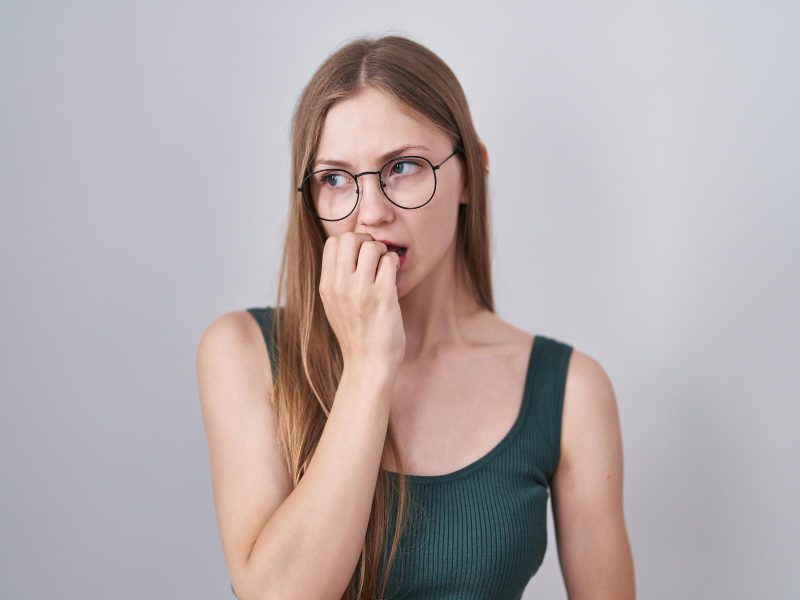Onychophagia, also known as nail biting, is a compulsive habit of repetitive nail biting. It is a very common habit, affecting people of all ages, but it is more common in children and adolescents.
In this article, from our dental clinic in Malaga and Torremolinos, Gross Dentistas, we are going to see what onychophagia is, what its causes and consequences are, and how to treat it.
Causes of Onychophagia
The causes are not entirely clear, but they are thought to be related to psychological factors, such as stress, anxiety, boredom or nervousness. It can also be a learned habit, which is acquired by imitating other family members or friends.
In some cases, it may be related to psychological disturbances, such as obsessive-compulsive disorder (OCD) or generalized anxiety disorder (GAD).
Consequences of onychophagia
Onychophagia can have a number of negative health consequences, both physical and psychological.
Physical Consequences
The most common physical consequences are:
- Enamel wear: Repeated nail biting can lead to wear away on tooth enamel.
- Cavities: Nails can be contaminated with bacteria. If these bacteria are introduced into the mouth, they can lead to cavities.
- Infections: Repeated biting of the nails can lead to wounds and therefore the entry of bacteria into the skin surrounding the nails. These bacteria can cause infections, such as paronychia or toenails.
- Bad breath.
- Temporomandibular joint (TMJ) abnormality: The TMJ is the joint that connects the jaw to the skull. Repeated nail biting can lead to TMJ strain, causing pain and chewing problems.
Psychological consequences
The psychological consequences of onychophagia may include:
- Anxiety: If you feel like it’s affecting your life, it’s important to seek professional help.
- Low self-esteem: It can lead to low self-esteem, as damaged nails can be a source of embarrassment.
Treatment of Onychophagia
Treatment depends on the underlying cause. If it’s caused by stress, anxiety, or nervousness, treatment may include relaxation techniques, such as meditation or yoga. It can also be helpful to seek support and positive reinforcement from family and friends.
In some cases, professional treatment may be necessary. Cognitive behavioral therapy (CBT) is an effective form of treatment. CBT helps people identify and change the thoughts and behaviors that contribute to the habit.
Other treatment options include:
- Bitter nail polish: Bitter nail polish is a product that is applied to the nails to make them unpleasant to taste. This can help deter people from biting their nails.
- Splints: Splints are devices that are placed on the teeth to prevent people from biting their nails.
You can also follow these tips to help you stop biting your nails:
- Identify triggers: When do you bite your nails? Once you’ve identified your triggers, you can start developing strategies to avoid them.
- Keep your nails short.
- Keep your hands busy: When you feel the urge to bite your nails, find an alternative activity to occupy your hands, such as painting, playing an instrument, or knitting.
- Reward yourself for not biting your nails: When you manage not to bite your nails for a period of time, reward yourself with something you enjoy. This will help you stay motivated
Do you want to learn more about this or any other issue related to our industry? We remind you that you can contact us.
Our specialists will be happy to assist you! Make an appointment.
Ortodoncista especializada en el sistema de ortodoncia invisible, extensa trayectoria profesional y un gran número de pacientes satisfechos con los resultados obtenidos tras la finalización de su tratamiento.


